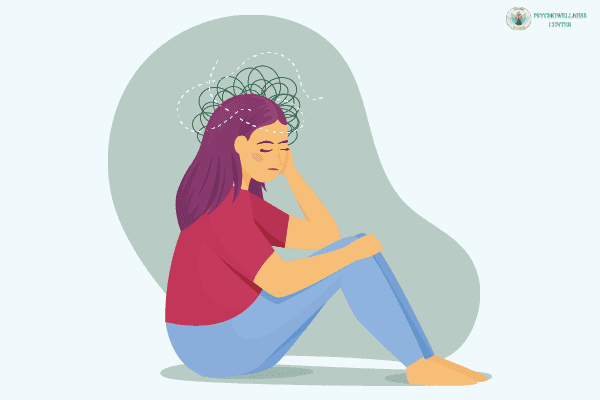Learning the Art of Forgiveness: What Is Forgiveness Counseling?

Who hasn't been harmed by someone else's deeds or words? Perhaps you experienced repeated criticism from a parent when you were a child, a coworker sabotaged a project, or your partner had an affair. Or maybe you've had a traumatic incident, like being physically or mentally abused by a family member.
These tragedies may leave you with enduring feelings of fury, resentment, and even vengeance. But if you don't learn to forgive, you can end up paying the price. Accordingly to Dr (Prof) R K Suri Best Clinical Psychologist in India “forgiveness is an art and process of letting off and go and forgiving others, you can embrace joy, happiness, serenity, hope, and thankfulness”. Consider the potential advantages of forgiving others for your physical, emotional, and spiritual well-being.
To each person, forgiveness means something different. However, in most cases, it entails making the decision to let go of resentment and thoughts of vengeance.
Although the act that hurt or offended you could always be with you, forgiving the offender might help you break free from their hold and loosen its effect on you. After you have forgiven someone, you could even experience understanding, empathy, and compassion for the person who wounded you.
Reconciling with the perpetrator or forgetting about the harm they caused you are not necessary components of forgiveness. You can go on with life more easily when you are able to forgive. It is possible to experience better health and mental tranquility by letting go of past grudges and bitterness. What may forgiveness lead to?
- Healthier connections
- Elevated mental state
- Less stress, anxiety,
and hostility
- Blood pressure reduction
- Fewer depression symptoms
- Enhanced immunological
response
- Better healthy heart and fewer chances of cardiovascular diseases
- Higher self-esteem
Anger, anguish, and confusion can result when someone you love and
trust hurts you. If you dwell on upsetting incidents or circumstances, grudges
that are motivated by hatred, retaliation, and antagonism may grow. If you
allow negative emotions to dominate positive ones, you run the risk of being
overpowered by your own bitterness or sense of injustice.
Naturally, some people are more forgiving than others. However, even those who hold grudges might develop a more forgiving attitude with the help of positive psychology principles and good online Counseling by the best Online Counselor at India’s No. Online Counselling and Mental Health & well-being platform.
Forgiveness is a commitment to a special process of change. One way to transition from pain to forgiveness is to:
- Acknowledge
the importance of forgiving others and how it can enhance your life.
- Determine
what needs to be healed, who needs to be forgiven, and why.
- Think
about going to counseling or joining a support group.
- Recognize
how your feelings regarding the wrongs you've suffered affect your
conduct, and attempt to let them go.
- Decide
whether or not to pardon the wrongdoer.
- Get out of the victim position and relinquish any influence or authority the offender or circumstance has had over you.
You'll stop defining your life by the ways
you've been hurt as you let go of your grudges. You might even discover
sympathy and compassion. You can consult the Best
psychologist in Delhi NCR, Dwarka,
Noida, and Gurugram to learn forgiveness therapy.
Grudges take time to develop and fester, and
there is a process involved in getting rid of them. These steps will assist you
in letting go of them. Don't be afraid to ask a trusted loved one or a
professional for assistance if you find it difficult to complete the task on
your own. Your mental health is of great value please do take a free
self-assessment to better understand your mental
health issues and have a better understanding of your self-development.
Acknowledge the hurt
In actuality, you were wronged. Consequently, as
a first step, explain what occurred and how you feel. Create a letter or entry
in your journal to the person. When you put them in that mental chair and let
your wrath toward them out, venting this may be quite powerful.
Listen to people in your support system
Talk about the upsetting details with your
family and friends, who are your support system. As a sounding board, use them.
But keep in mind that even your loved ones can become weary of hearing from
you. And if they advise you to do so, pay attention to them. Do as they say.
Get rid of those unpleasant grudges. The Best Psychologist in
India can be a great help in
listening to your grudges and resolving them on a guided journey.
Understand how you have been affected
It is a good idea to take a moment to consider
the detrimental impact your grudges have on your life as you wallow in them.
Perhaps you are going about your daily activities in the mindset that
everything is OK and that life is normal.
Take the high road
The most crucial action you can take to let go
of resentment is to take the high road.
How? To put it simply, try to avoid letting your
bad emotions rule your life. We can choose. Why not make it constructive?
Learn to put yourself in their shoes
I understand that this is not what you want to
hear, but take a moment to imagine yourself in the other person's position. It
is simple to blame them, but what if you were in their shoes? You might be able
to comprehend their actions better if you consider the scenario from their
point of view. Try to comprehend why they did it. You could find it simpler to
forget and move on as a result.
Practice letting go
Empathy makes it possible to forgive. You might
be able to deal with your own sorrow by understanding that the other person has
unresolved pain and that when they act in their own self-interest, it
invariably conflicts with yours.
Enhance your positive energy
We begin to let go of our grip on our
resentments as we put our attention on embracing positive energy. And that's
wonderful. What exactly does it mean to embrace good vibes? Consider going to
places and spending time with individuals that inspire you. You can get rid of
the negativity by savoring more of these positive emotions.
Grudges are difficult to hold. It's challenging
to constantly feel miserable. Why not choose to ease your burden by putting
your welfare first? You ought to be contented.
.png)

.png)

SHARE